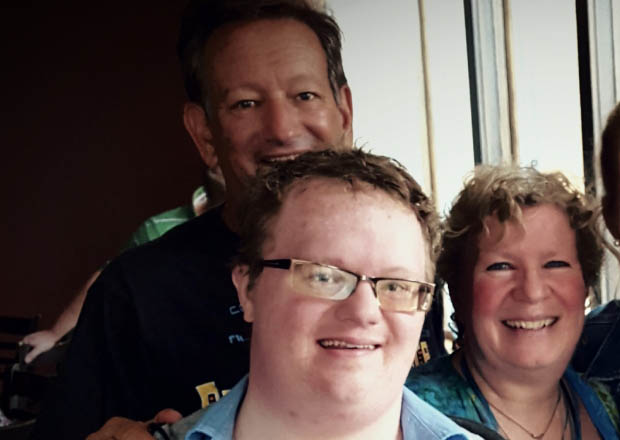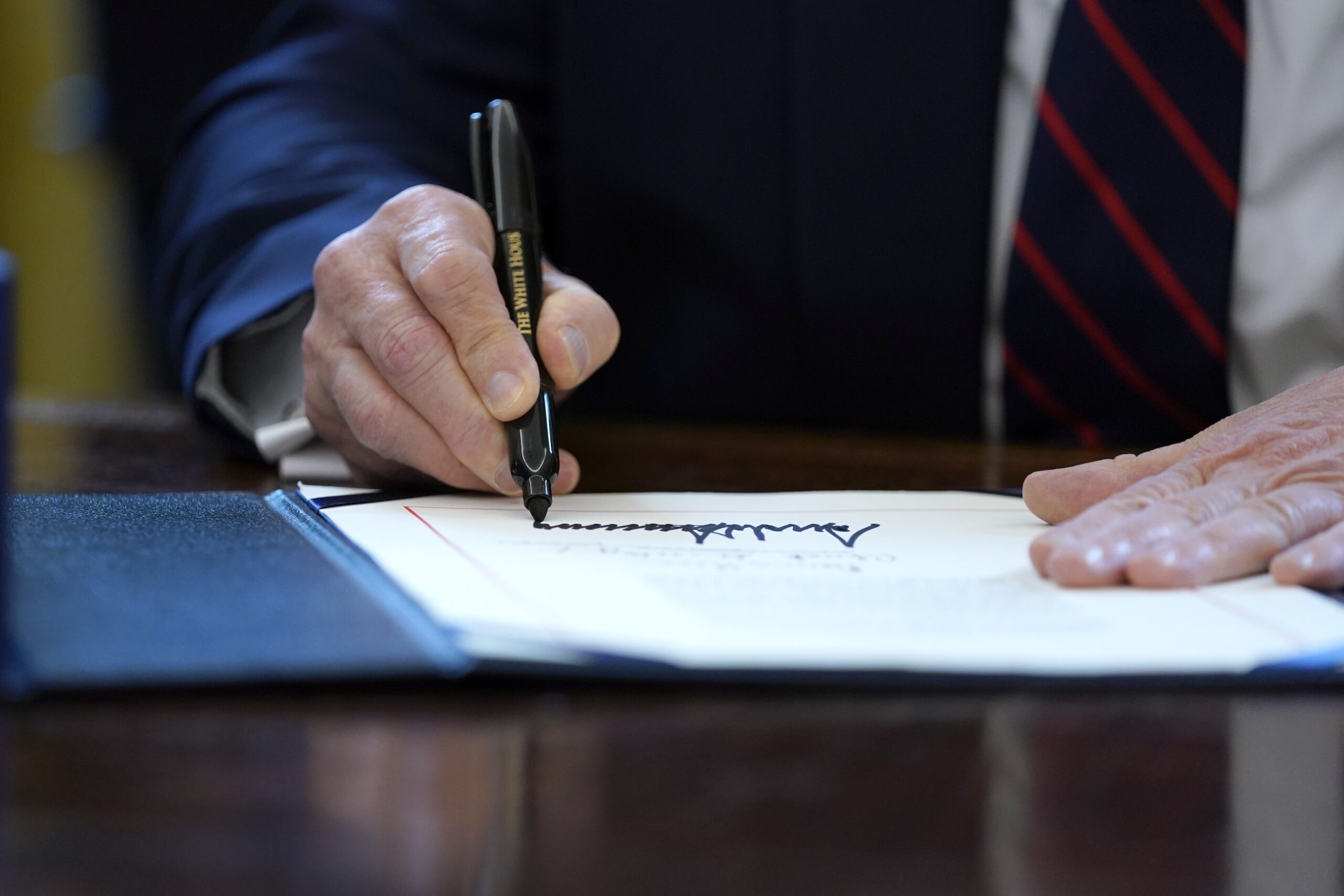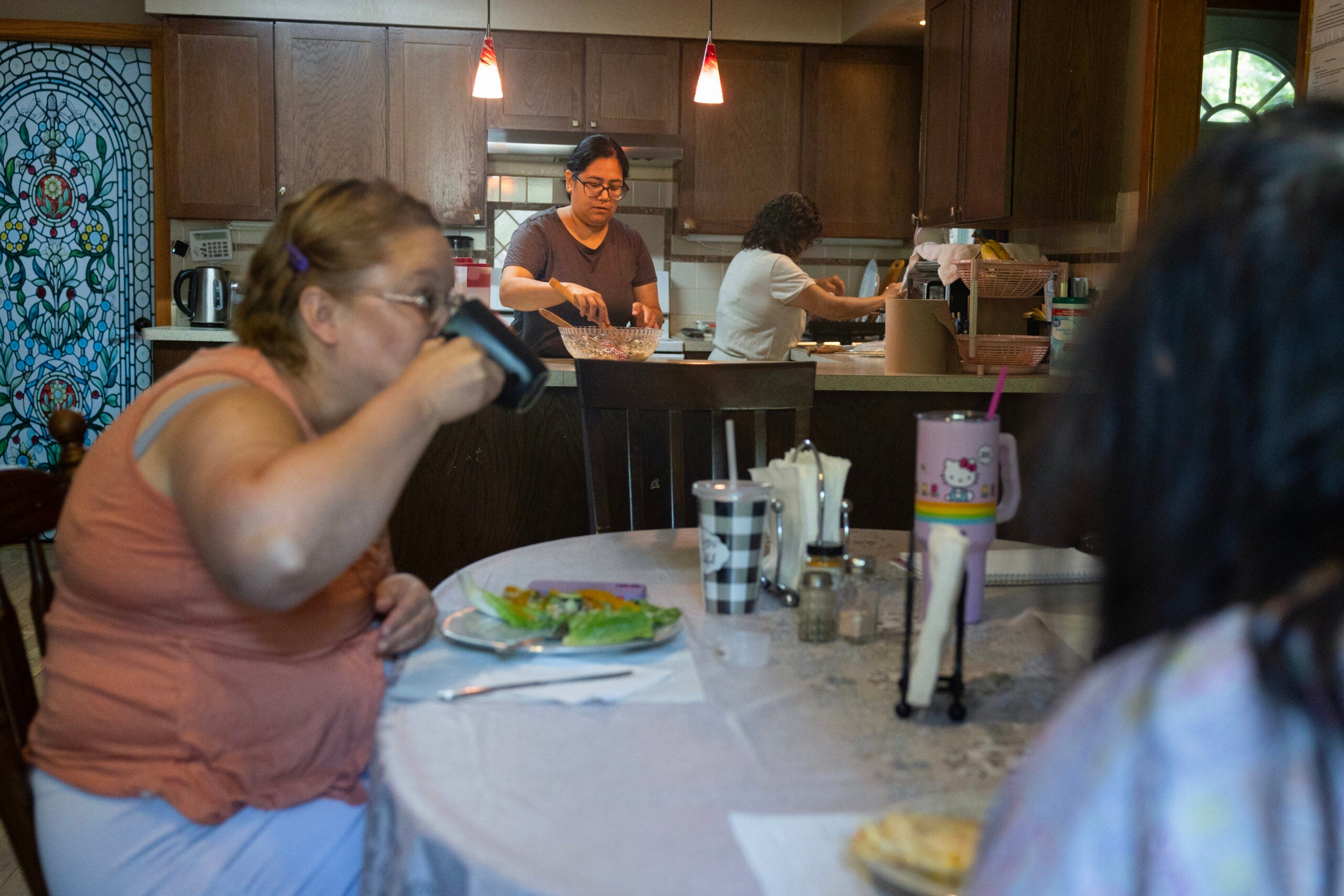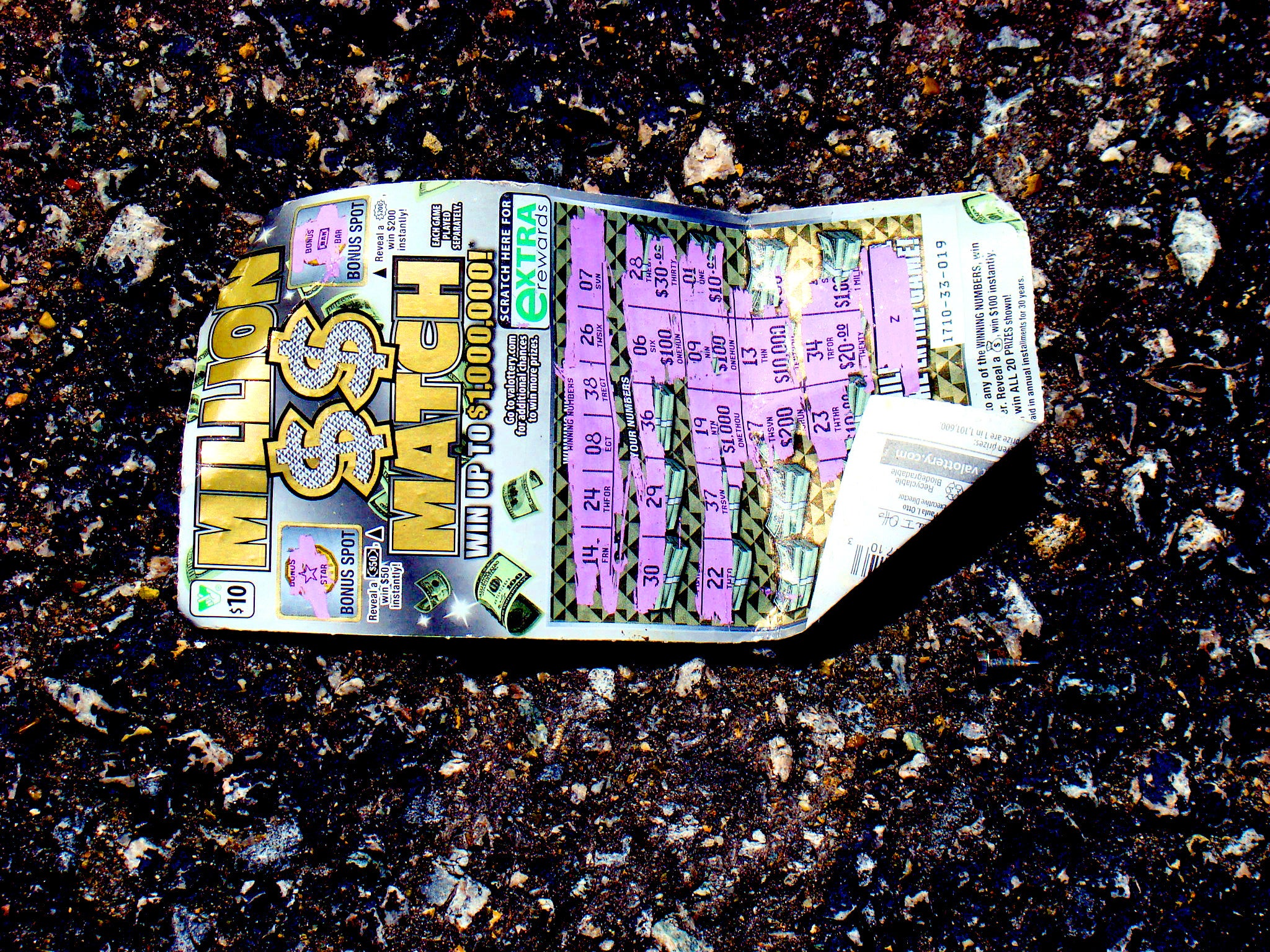As the federal government rolls out stimulus payments under the Coronavirus Aid, Relief, and Economic Security Act (CARES Act), there’s appreciation mixed with concern: Will it be enough for struggling families? Will it ignite a stalled economy? Will it go to those who truly need it?
Monica Paprocki knows what it’s like to have very little.
The Milwaukee native grew up in a family that relied on government food assistance, so she knows better than most what a helping hand can do. And that’s what inspired the 60-year-old mother of two to carry out a spontaneous act of kindness recently.
News with a little more humanity
WPR’s “Wisconsin Today” newsletter keeps you connected to the state you love without feeling overwhelmed. No paywall. No agenda. No corporate filter.
While at a Pick ‘n Save in Milwaukee, she asked fellow shoppers if anyone worked at a restaurant. A young woman responded she’d been laid off and had just received her last paycheck.
“So, I paid for her groceries,” Paprocki said matter of factly.
“I think the person behind her was bawling. But she was just like, ‘Thank you, thank you,’” Paprocki said. “She wanted my information to pay me back someday, and I said, ‘No, just pay it forward some day when you are in a better place.’”
Earlier this month, the state Department of Workforce Development reported total new applications for unemployment benefits reached more than 313,000 between March 15 and April 6. Last week, 56,038 people applied for the benefits, and as of Tuesday morning, 16,374 more people had applied, according to DWD.
This month, the federal government started depositing stimulus checks into Americans’ bank accounts to provide some financial relief during a devastating economic downturn caused by the coronavirus pandemic.
Paprocki and her husband, Russ, 65, haven’t gotten theirs yet. They are eligible, she said, so it may just be a matter of waiting.
The $2,400 the Paprockis expect from the federal government is less of a concern than the stimulus check for their 28-year-old son, Steven.
Born with Down syndrome, he lives in his own apartment in Milwaukee with money from Social Security disability payments and a part-time job at a grocery store in the city.

Monica went to the IRS website looking for answers to if her son was eligible and when he could expect the money, but she didn’t find any. And there’s no hotline the public can call. Instead of a staffed phone line, callers get a recording stating that phone assistance lines are closed because of the coronavirus.
For others, there is no waiting, just wondering.
Shalicia Johnson has already received her government stimulus money through direct deposit. But the Fitchburg resident worries if it will be enough for a public health crisis with no end in sight.
“I think it’s a good start. I realize the government does not have an endless supply of money,” she said. “But $1,200 may be one paycheck for people, depending on where your income falls. But one paycheck in weeks and weeks of potentially not working is definitely not enough to keep people going.”
Those who can share expenses may have it a little easier. Johnson doesn’t live alone, but her housemate doesn’t help with the bills.
“Just me,” she laughs. “My dog has yet to get a job.”
Johnson, 44, is referring to her dog, Arrow, who inspired the name for her photography business ArrowStar Photography. But business has dried up with the pandemic. Johnson is still employed with a child care agency but relies on her photography job for grocery and gas money.

Another small business owner in Middleton, Camille McCoy, is using her stimulus check to pay rent and utilities at her aromatherapy and massage business, Escential Massage, which has been temporarily closed since mid-March due to the pandemic.
“It has been a financial stress,” said the 62-year old entrepreneur. “Just like everybody else, not going to work and not knowing when I can go back to work has been a challenge.”
The federal legislation that included the stimulus money is an effort to combat some of that uncertainty, said James McGibany, an associate professor and chair of economics in the College of Business Administration at Marquette University.
“It’s kind of both a small stimulus aspect to it and a little bit of signaling or confidence that ‘OK, things aren’t that bad, and we’ll get you through this.’ So, there’s some of that going on too,” McGibany said.
Attorneys general around the country are concerned the financial relief won’t get to everyone who needs it because it will be intercepted by bill collectors.
In a letter to U.S. Treasury Secretary Steven Mnuchin, a bipartisan coalition of 25 attorneys general asked the agency to protect CARES Act funds, like other government relief programs, and ensure funds go where they were originally intended.
In their letter, the coalition — led by New York Attorney General Letitia James — urged Mnuchin to use his authority under the CARES Act to issue regulation or guidance explicitly designating coronavirus stimulus payments as funds that are exempt from garnishment.
“The coronavirus has caused hundreds of thousands of Wisconsinites to lose their jobs,” said Wisconsin Attorney General Kaul in a statement. “The emergency payments authorized by the CARES Act should be going to families in need of immediate financial relief to make ends meet, not creditors and debt collectors.”
The other concern is scammers.
“I think one of the most important things for people to be cautious about is there’s now going to be a proliferation of scams,” said Michael Collins, director of the Center for Financial Security at the University of Wisconsin-Madison.
“What you find is scammers making calls or sending emails trying to get people to give away their private information, especially their Social Security number and their bank account information,” Collins said. “There is no one from any government agency that is asking anyone to divulge that information. Anybody who does ask you for that, you should immediately hang up or run away because it’s a scam.”
Even if the money goes where it’s intended, there are no rules on how it should be spent, said one private financial advisor.
“I think what the first question is: ‘What is it that people shouldn’t do?’” said Jay Handy, a financial advisor with SignalPoint Asset Management.
“When people are ‘given something,’ I’m using air quotes here, that’s free, you tend to want to go out and buy something a little bit out of the ordinary, a luxury item. I would say don’t do that,” Handy said. “We don’t know what the future holds for a lot of people.”
Who Is Eligible For Economic Impact Payment?
Tax filers with an adjusted gross income of up to $75,000 for individuals and up to $150,000 for married couples filing joint returns will receive the full payment of $1,200 and $2,400 respectively. For filers with an income above those amounts, the amount is reduced by $5 for each $100 above the $75,000 and $150,000 thresholds. Single filers with an income exceeding $99,000 and $198,000 for joint filers with no children are not eligible for a payment.
What If I Don’t Have A Bank Account?
The IRS will mail payments to the address they have on file. This is generally the address on the most recent tax return or as updated through the United States Postal Service (USPS).
Wisconsin Public Radio, © Copyright 2025, Board of Regents of the University of Wisconsin System and Wisconsin Educational Communications Board.




